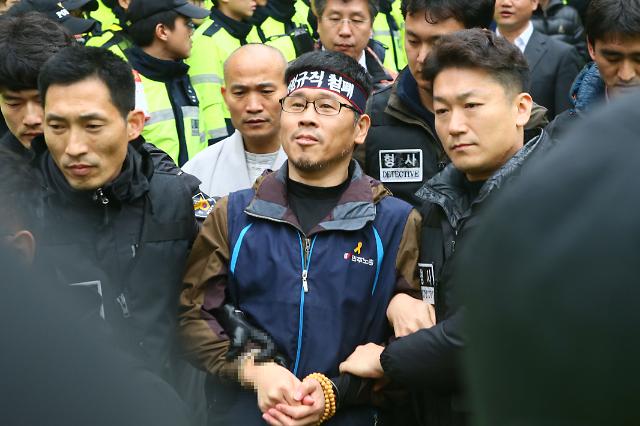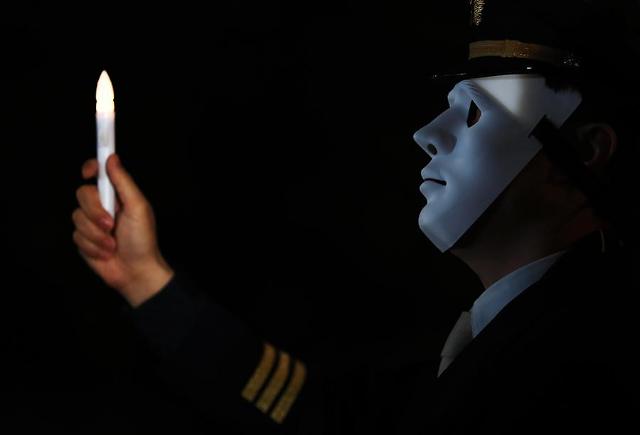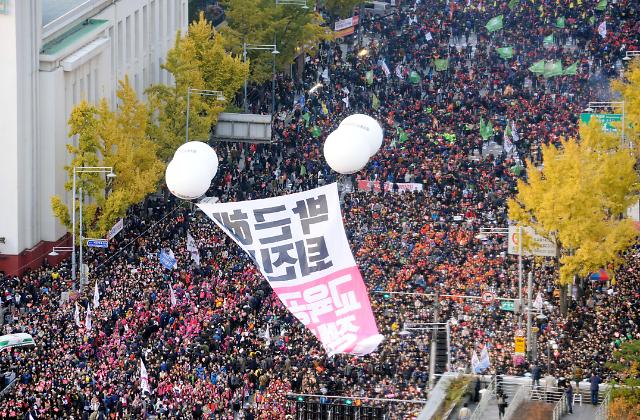
Han Sang-gyun, the leader of Korean Confederation of Trade Unions (KCTU) is walking towards a police vehicle under custody [Photo by Yoo Dae-gil = dbeorlf123@ajunews.com]
A fugitive South Korean labor leader on Thursday surrendered to police after taking refuge at a major Buddhist temple in downtown Seoul for 24 days.
Han Sang-gyun, head of the Korean Confederation of Trade Unions (KCTU), was arrested by police as he turned himself in after holding a press conference denouncing moves by President Park Geun-hye’s administration to push through a labor market reform.
Tensions rose high at the temple, headquarters of the largest Jogye Order of Korean Buddhism on Wednesday evening as hundreds of police surrounded the temple while monks and scores of young Buddhist followers formed a human barricade to block police access
Police suspended the raid after the executive chief of the temple held a press conference saying the Jogye Order would resolve the issue by noon on Thursday.
On Thursday, Han finally emerged, paid his respects at the main shrine, addressed his supporters and the press, and then gave himself up to waiting police.
Han has been sought by the police for inciting violence during a massive anti-government rally on 14 November
Last Saturday, tens of thousands of activists marched through downtown Seoul for the second massive rally in less than a month to protest against the government’s labor reforms and education policies.
Unlike the first gathering on Nov 14 in which dozens of protesters were detained and more than 100 police officers were injured, the latest rally was peaceful no one being arrested or injured, according to police.
The demonstrators were protesting against moves by President Park’s conservative government to dismiss workers based on performance and to place a ceiling on the salaries of senior employees to encourage employers to recruit younger people and reduce youth unemployment.
They also protested against Park's decision to replace privately published school history textbooks with government versions, a move they say is an attempt to whitewash military dictators' oppression of democracy and human rights in South Korea.
By Alex Lee




![[UPDATES] Huge candle-lit rally demanding Parks resignation descends in central Seoul](https://image.ajunews.com/content/image/2016/11/12/20161112182753439320.jpg)